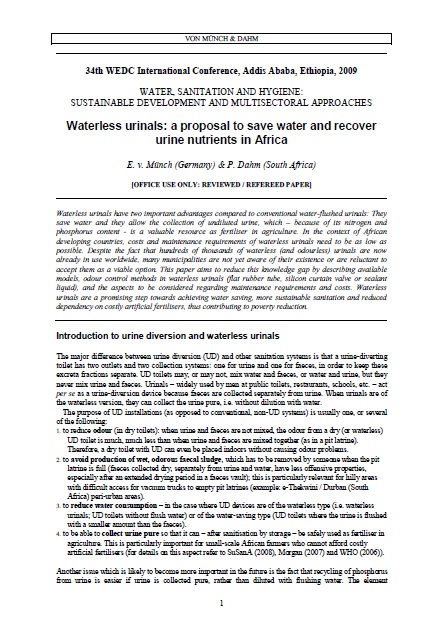Waterless Urinals - A Proposal to Save Water and Recover Urine Nutrients in Africa
Author: Münch, E., Dahm, P.
Year: 2009
Publisher: 34th WEDC International Conference, Addis Ababa, Ethiopia
Waterless urinals have two important advantages compared to conventional water-flushed urinals: They save water and they allow the collection of undiluted urine, which – because of its nitrogen and phosphorus content – is a valuable resource as fertiliser in agriculture. In the context of African developing countries, costs and maintenance requirements of waterless urinals need to be as low as possible. Despite the fact that hundreds of thousands of waterless (and odourless) urinals are now already in use worldwide, many municipalities are not yet aware of their existence or are reluctant to accept them as a viable option. This paper aims to reduce this knowledge gap by describing available models, odour control methods in waterless urinals (flat rubber tube, silicon curtain valve or sealant liquid), and the aspects to be considered regarding maintenance requirements and costs. Waterless urinals are a promising step towards achieving water saving, more sustainable sanitation and reduced dependency on costly artificial fertilisers, thus contributing to poverty reduction.
Rating
Would you like to see other resources here?
Give us your feedback"*" indicates required fields
Still have questions?
You could not find the information you were looking for? Please contact our helpdesk team of experts for direct and individual support.


